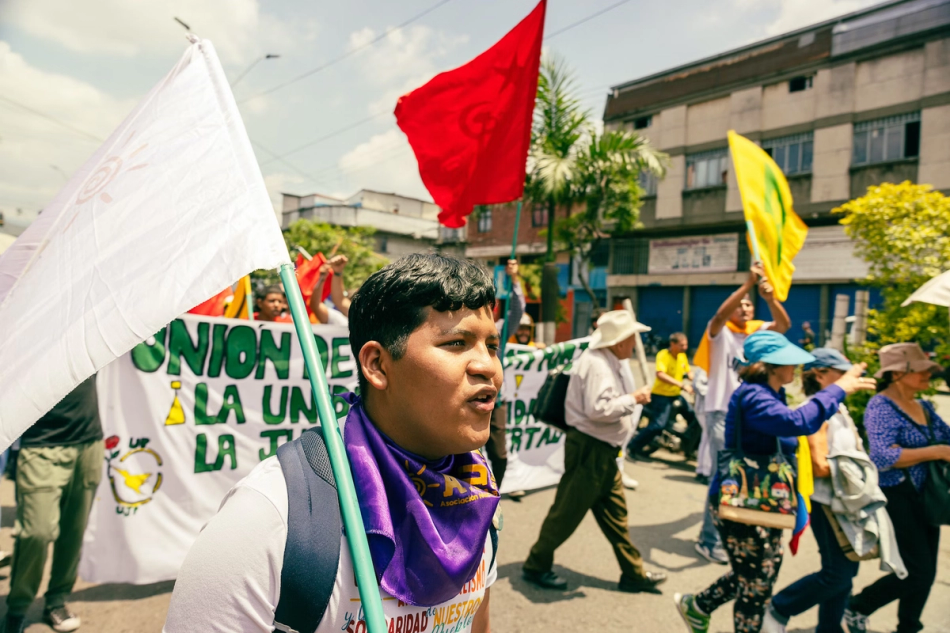Nyhet
The resource theft
(image) The problem is that Morocco is stealing these resources in violation of international law (1), and selling them to countries such as Norway. The Sahrawi never see the resources or the money. The employees in the industries are Moroccans, and resources disappear through Morocco to Norwegian and other foreign companies. Several Norwegian companies have in recent years made contracts with Morocco on extraction and export of, or search for natural resources in occupied Western Sahara. Cooperating with Morocco on this resource theft is directly financing and legitimizing the occupation. Sign SAIH’s petition to the Norwegian authorities.
Timeline for the resource theft: 1975 - Morocco occupies the country, and begins to develop the ports of El Aaiun and Dakhla, which today receive more fish than any city in Morocco. 1986 - Spain becomes a member of the EU, and is the driving force behind several of the EU’s fisheries agreements with Morocco. 2001 - 750,000 tonnes of sand are exported from Western Sahara in 2001. The sand is mainly used to make fake beaches on the Canary Islands and is promoted by the Norwegian tour operators as gorgeous and golden beaches with sand from the Sahara. 2001 - Oil companies TotalFinaElf and Kerr McGee sign contracts with Morocco, which give the companies permission to look for oil off the coast of the occupied Western Sahara. 2002 - In the aftermath of the oil contracts, the UN determines that all further oil exploration and oil production in the area is in violation of international law (1). Nevertheless, the Norwegian seismic company TGS-NOPEC signs a deal with the Moroccan authorities to prepare illegal oil extraction off the coast of Western Sahara. SAIH started a campaign together with the Support Committee for Western Sahara to get the company to withdraw. After several hundred notices in the press, an impressive petition, and more then twenty shareholders selling their shares, the company pulled out. 2004 - Norwegian imports of fish oil from Morocco and Western Sahara reaches a peak of NOK 121 million. It is unclear how much of this is from Morocco, and how much is from Western Sahara. 2004 - Norad allocates NOK 420 000 to the Norwegian company Self Arctic’s boat building project in the occupied Western Sahara. The foreign ministry ignores criticism of the project. 2005 – The Norwegian public broadcaster (NRK) shows a documentary in May 2005 that gives negative attention to the boat project. The foreign ministry cuts the support and the Norwegian ambassador to Morocco is called home. Self Arctic has to withdraw form Western Sahara. 2005 - The Norwegian phosphate giant Yara announces that it will stop future imports from Western Sahara. They admit to having imported 27,000 tonnes of phosphate over the decade.
2006 - The largest Norwegian fisheries project in Western Sahara ever is launched by the Sjøvik group, and provides hundreds of illegal (2) Moroccan settlers with jobs in the town of Dakhla. As part of the project, the giant trawler Midøy Viking raids outside the occupied territories. The Sahrawi and the exile government protest loudly. 2007 – The foreign ministry advises against all forms of economic relations with Western Sahara, including imports to Norway. 2007 - A new fisheries agreement between the EU and Morocco opens for European fishing outside occupied Western Sahara. 2008 - Yara imports stolen phosphate worth NOK 40 million from Western Sahara. The government has the ability to stop the trade, but throws away the opportunity. 2009 - The Norwegian seismic company Fugro-Geoteam looks for oil off the coast of Western Sahara. Sahrawi students protest. 2009 – The shipping company Gearbulk, which is partly owned (60%) by the Jebsen family in Bergen has transported phosphates worth up to 1 billion NOK, from Western Sahara over a number of years. Status 2009 Oil has still not been found in Western Sahara. If Morocco finds oil, it is almost certain that they will never give up the resources voluntarily. Norwegian seismic companies have made this industry possible. Today, the phosphate from the Bou Craa-mines in Western Sahara constitutes a total of 10% of Morocco's total phosphate output. The plant produces around 2.4 million tonnes annually, and is thus a significant part of the Moroccan state budget. Moroccan and foreign fishing boats make sure that fishing in the occupied territory continues. Despite the ministry's dissuasion, Norwegian companies continue trading with resources from the occupied area. Resource Theft in Western Sahara: http://www.vest-sahara.no/index.php?cat=54art=0 Western Sahara Resource Watch: www.wsrw.org (1) UN Secretary-General for Legal Affairs, stated, in January 2002, that if further exploration and exploitation activities were two proceed in disregard of the interests and wishes of the people of Western Sahara, they would be in violation of the principles of international law . See the thorough UN assessment here. (2) Settlers are a violation of the Geneva Convention Article 49 The Occupying Power shall not deport or transfer party of its own civilian population into the territory it occupies.







